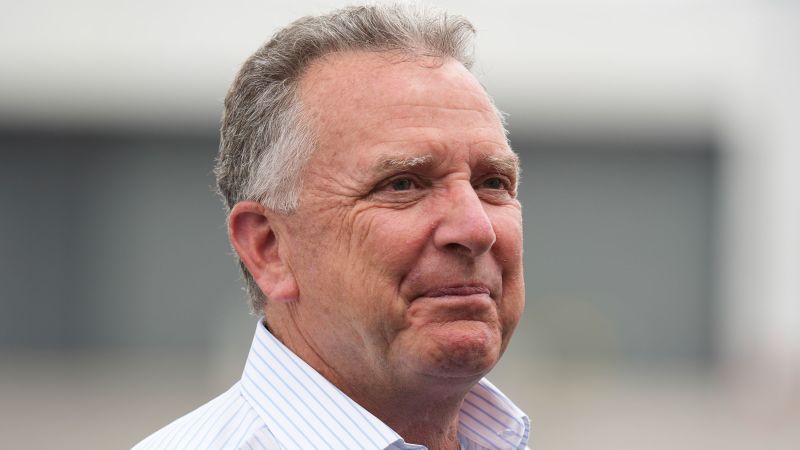In a noteworthy diplomatic maneuver, President Donald Trump has dispatched his trusted envoy, Steve Witkoff, to Moscow amid escalating tensions and potential sanctions linked to the ongoing Ukraine conflict. Witkoff is slated to meet with Russian officials, which may include important discussions with President Vladimir Putin, as both parties navigate the complexities of the situation in Ukraine. The Kremlin has actively sought this engagement, hoping to deter the severe sanctions Trump is contemplating.
As Witkoff prepares for his trip to Moscow, lingering uncertainty pervades the expectations surrounding his discussions with Putin. Trump has expressed skepticism regarding Putin’s genuine interest in seeking an end to hostilities in Ukraine, raising concerns that he may be misled by the Russian leader. This war has stoked growing mistrust between Trump and Putin, complicating the diplomatic landscape.
During his tenure, Putin has pursued assertive military objectives aimed at territorial gains, particularly in the Ukrainian regions of Donetsk, Luhansk, Zaporizhzhia, and Kherson. His unwillingness to relent on these ambitions has prompted the ongoing conflict, which has devastated countless lives and led to severe global repercussions. Meanwhile, Trump has indicated a conditional approach toward sanctions, suggesting he would withhold immediate punitive actions pending the outcome of Witkoff’s discussions.
Just ahead of Witkoff’s departure, Trump spoke publicly about the meeting, reiterating a wait-and-see approach: “We have a meeting with Russia tomorrow. We’re going to see what happens,” he remarked at the White House. This extant strategy contrasts starkly with previous attempts to engage with Russia, as Trump’s stated frustration with Putin has escalated over time.
The context surrounding Witkoff’s forthcoming meeting markedly differs from his previous trip in April. Since then, Russian aggression has intensified, seen in the barrage of missile and drone attacks on Ukrainian cities, which has raised alarm in the United States and among its allies. Prior to embarking on his mission, Witkoff held a telephone conversation with Ukrainian President Volodymyr Zelensky to discuss potential sanctions on Moscow, reiterating Trump’s commitment to changing the financial leverage impacting the Kremlin.
Consequently, Zelensky emphasized that stringent sanctions could significantly affect the Russian economy. Discussions also delved into the United States’ increase of military support for Ukraine, highlighting the shared urgency in strengthening Ukraine’s defenses against Russian advances. Amid these discussions, Trump’s patience with Russia’s resistance has notably waned, leading him to describe the air assaults conducted by Moscow as “disgusting” and accusing Putin of disingenuous rhetoric during their exchanges.
Trump has set a critical deadline for peace negotiations, insisting that Russia must agree to a ceasefire by Friday to avoid severe sanctions, including measures directly targeting the Russian economy and those participating in its energy procurement. This strategic timeline reflects Trump’s growing impatience with the lack of substantial progress and a marked shift from his earlier negotiation timelines, which suggested more leniency.
He underlines the leverage of punitive measures, but skepticism looms over their potential effectiveness, given Moscow’s previous ability to circumvent sanctions. Trump is also contemplating repositioning US nuclear submarines to amplify American military readiness in the face of rising threats from Russia, particularly in response to provocative rhetoric from Dmitry Medvedev, the former president.
Notably, Trump has articulated his intention to impose tariffs on countries such as India and China that continue to engage meaningfully with Russian energy resources, a maneuver designed to impair funding for the ongoing war efforts. Trump’s administration has remained vigilant in its attempt to draw up secondary sanctions, but any actionable steps will heavily depend on Russia’s response to Witkoff’s diplomatic overtures.
Despite fluctuations in rhetoric and strategy, Witkoff’s role remains crucial in this ongoing geopolitical labyrinth, marked by unpredictable stakes and shifting alliances. Diplomatically inexperienced yet persistently involved, Witkoff’s prior meetings with Putin have illuminated the complicated dynamics at play—where aggressive maneuvers sit alongside tentative hopes for constructive dialogue. As Witkoff’s engagement unfolds, all eyes will be on the ramifications of this critical juncture in US-Russian relations and the broader implications for global geopolitical stability.











